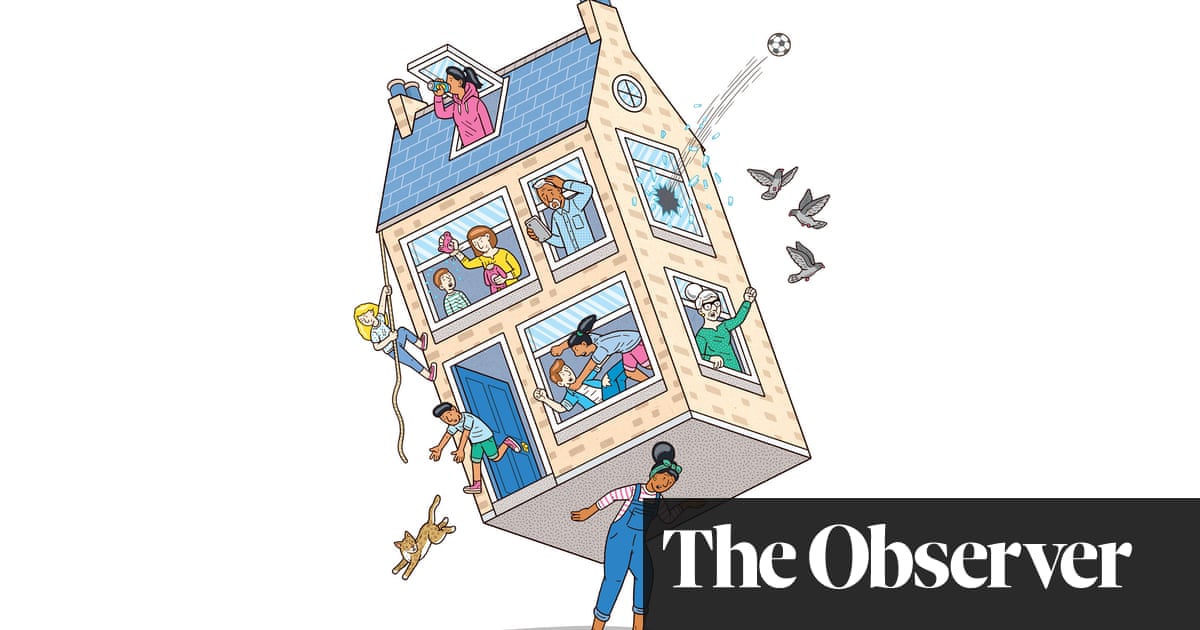
Instinctively, we know that a child needs warmth and acceptance, physical touch, our physical presence. There must be love plus boundaries, understanding and validation, play with people of all ages, many experiences of being soothed when they’re upset and a lot of attention and time. So why can it be difficult to do this?
We promise our unborn child that this is how we will behave towards them but then, just a couple of years later, we’re feeling particularly exasperated and we hear our own parents’ words coming out of our mouths. “Because I say so!” or whatever it was they said.
We tend to repeat behaviours shown to us by our parents, and then repeat them with our own child. Of course, if these actions made us feel wanted, loved and safe as a child, that is fine. But so often they did the opposite.
Much of what we have inherited sits just outside of our awareness. That makes it hard to know whether we are reacting in the here and now to our child’s behaviour or whether our responses are more rooted in our past. It’s easy to fall into making assumptions about our emotional reaction without considering what’s being triggered from our own background. But when you feel anger – or any other difficult emotions including resentment, frustration, envy, disgust, panic, irritation, dread, fear etc – in response to something your child has done or requested, it’s a good idea to think of it as a warning. Not a warning that your child is necessarily doing anything wrong, but that your own buttons are being pressed.
Often the pattern works like this: when you react with anger or another overly charged emotion around your child, it is because it’s a way you have learned to defend yourself from feeling what you felt when you were their age. Outside of your awareness, their behaviour is threatening to trigger your own past feelings of despair, longing, loneliness, jealousy or neediness. And so you unknowingly take the easier option: rather than empathising with what your child is feeling, you short-circuit to being angry or frustrated or panicked.
Sometimes the feelings from the past that are being re-triggered go back more than one generation. My mother used to find the shrieks of children at play irritating. I noticed that I, too, went into a sort of alert state when my own child and her friends were making a noise, even though they were enjoying themselves appropriately. I wanted to find out more, so I asked my mother what would have happened to her if she had played noisily as a child. She told me her father – my grandfather – who was over 50 when she was born, often had headaches, and all the children had to tiptoe around the house or they got into real trouble and would be punished. So when she heard kids shrieking appropriately as they ran around outside, she felt fear, and without meaning to, she passed that down to me. I can only hope I managed to stop that dynamic being passed down another generation.
Maybe you feel if you admit that, at times, your irritation with your child gets the upper hand, you fear it will intensify those angry feelings or somehow make them more real. But, in fact, naming our inconvenient feelings to ourselves and finding an alternative narrative for them – one where we don’t hold our child responsible for them – means we no longer blame our offspring for having triggered a difficult emotional state. If you can do this, it makes you less likely to act out on that feeling at the expense of your child.
You will not always be able to trace a story that makes sense of how you feel, but that doesn’t mean there isn’t one – and it can be helpful to hold on to that. One issue might be that, as a child, you felt the people who loved you perhaps didn’t always like you. They might sometimes have found you annoying, hard work, disappointing, unimportant, exasperating, clumsy or stupid. When you’re reminded of this by your own child’s behaviour, you are triggered and you end up shouting or acting out whatever your default negative behaviour is.
There’s no doubt it can feel hard becoming a parent. Overnight your child becomes your most demanding priority 24/7. Having a child may have even made you finally realise what your own parents had to deal with and maybe appreciate them more, identify with them or feel more compassion for them. But you need to identify with your own child, too. Time spent contemplating what it may have felt like for you as a baby or a child around the same age as your own child will help you develop that empathy. That will help you understand and feel with them when they behave in a way that triggers you into wanting to push them away.
I had a client who adopted an 18-month-old boy. Every time his son dropped food on the floor or left his food, he felt rage rise up. I asked what would have happened to him as a child if he’d dropped or left food. He remembered his grandfather rapping his knuckles with the handle of a knife, then making him leave the room. After he got back in touch with what it had felt like when he was treated like that, he found compassion for his own self as a toddler, which in turn helped him find patience for his child, and he could help him to assimilate better table manners in a more fun, less frightening way.
When your child does need guidance, they won’t be able to benefit if you give it when you are angry. They will only experience your anger, and not hear what you need to show them.
Unless you are a saint who’s had years of psychoanalysis and become the most self-aware person on the planet, you will “lose it” with your child. They have no choice but to live with you – they can’t choose to dump you while they are still your dependant, and so I’m afraid they are rather a sitting target when you are irritable, tired and generally pissed off. But you can do something your parents may not have done in this situation: you can take responsibility for your reaction and you can apologise to your child. Of course it would be better if we held it together in the first place, but we won’t always do that. Don’t underestimate the power of saying sorry. It also passes on the valuable lesson that being wrong doesn’t have to be humiliating.
The Book You Want Everyone You Love* To Read *(and maybe a few you don’t) by Philippa Perry (Cornerstone, £18.99). To support the Guardian and Observer, pre-order your copy at guardianbookshop.com. Delivery charges may apply.












